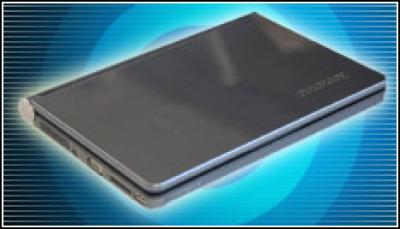Asus Dumps Linux From The Eee

If you want Linux on an Eee, you’ll have to go to Toys R Us, Asus tells eWEEK Europe
Computer maker Asus has stopped selling any versions of its popular Eee netbooks with Linux in the UK, explaining that the move has been made because people prefer Windows XP.
Asus virtually invented the netbook with the Eee, a low-cost machine first launched in late 2007 running Linux. Now, although Asus’ site lists several versions of the Eee supplied with Linux, the company has confirmed that it can supply no Linux Eee models at all – according to a phone call to the company, all the machines it sells come XP.
The Asus site lists nine models of Eee PC, including the new Seashell. All of them are listed with GNU Linux as an option and, for the Eee 1000, Gnu is the only option according to the site (see screen-grab below). A more detailed product sheet lists 26 versions, all but four of which can have Linux as an operating system.
However, on the phone to Asus, it is clear that none of these Linux versions are available from Asus. “It’s been a gradual migration over the last three months,” said a sales executive who answered Asus’ public number. “People have preferred Windows XP.”
Asking for a Linux Eee, eWEEK Europe was given two options: an Eee with a 7in screen, on sale from Misco, and one with a 9 in screen, sold by Toys R Us. Could we have Linux if we bought an order of 500 machines? “That’s doubtful,” we were told. “We haven’t done that yet.”
At a product launch last week – of the SeaShell and other machines – Asus defended its decision to move to XP, blaming other vendors for changing expectations and moving the market.
“When we launched the Eee PC we launched it with Linux and people were quite pleased with it,” said John Swatton, marketing specialist at Asus. “Then HP and Dell came along and said ‘Why are you buying Asus, with a small hard drive? Buy ours with a big hard drive.'”
Other vendors offered netbooks with XP, and Asus began losing market share, said Swatton. As a smaller company whose brand is less well-known, Asus had no choice but to follow the market, producing more fully-featured and expensive netbooks (including reported plans for one with an 11.6 in screen).
However, now netbooks have become 20 percent of the notebook market – by units sold – and Asus has benefitted, so the company might try and buck the trends in future when it is better known. “Brand awareness is important in the channel,” said Swatton. “We’ll keep raising the bar, and each time we’ll raise our awareness”.
Although Microsoft has won the battle to provide the netbook operating system, it might cost the company a great deal, said open source advocate Mark Taylor of Sirius IT: “Microsoft had to sell an obsolete operating system – nearly a decade old! – at a huge discount. This has already had a direct and extraordinary effect on both the revenue and profitability of Microsoft’s client division.”
Windows 7 may have a harder time ruling the netbook market, however, if rumours of an Android running Google’s Android version of Linux turn out to be true,
Some of the notebooks that Asus sells still have Linux after a fashion, in the form of a quick-launcher, which fires up a reduced operating system and a browser
Read our review of the Eee 1000H.
